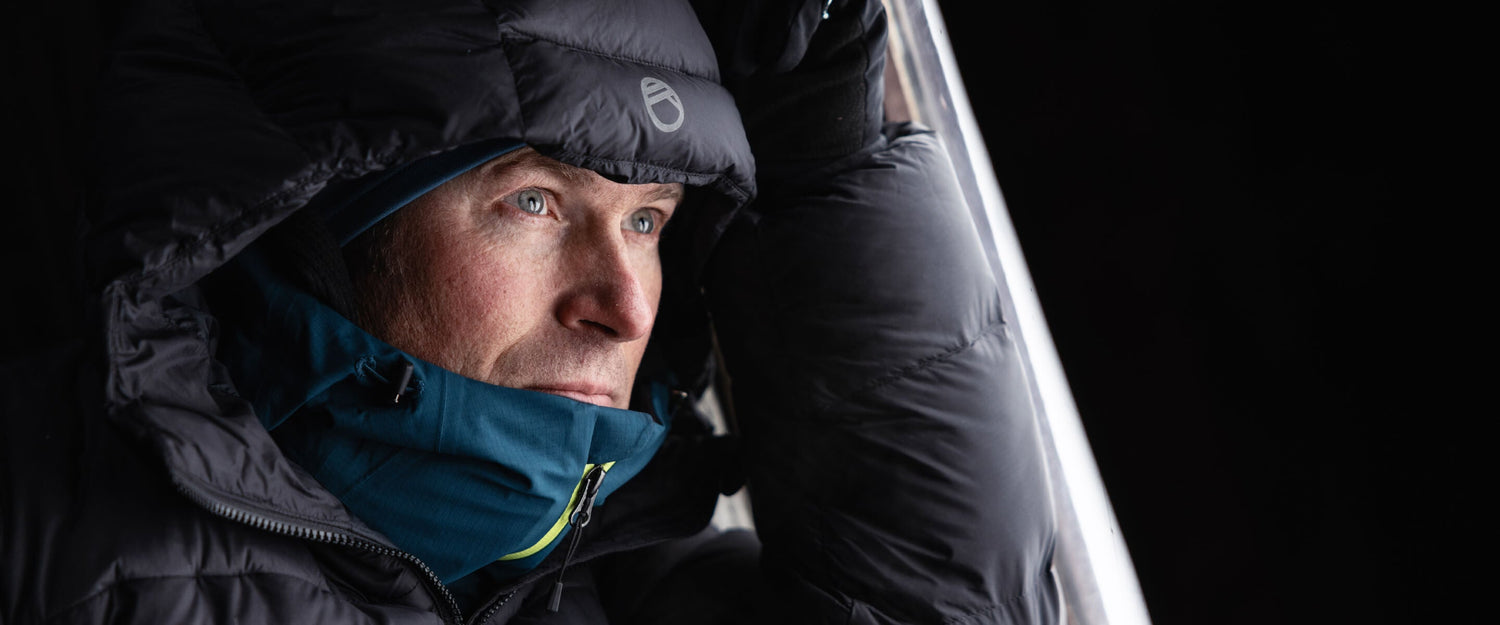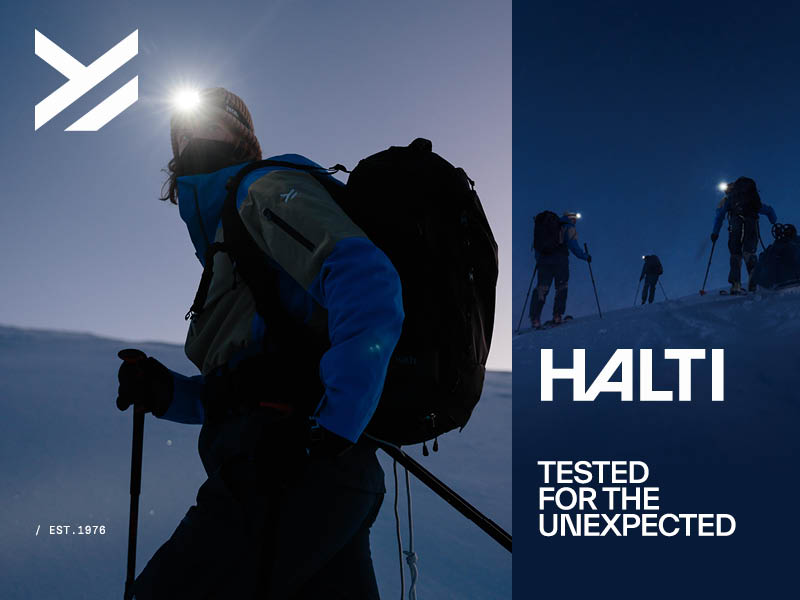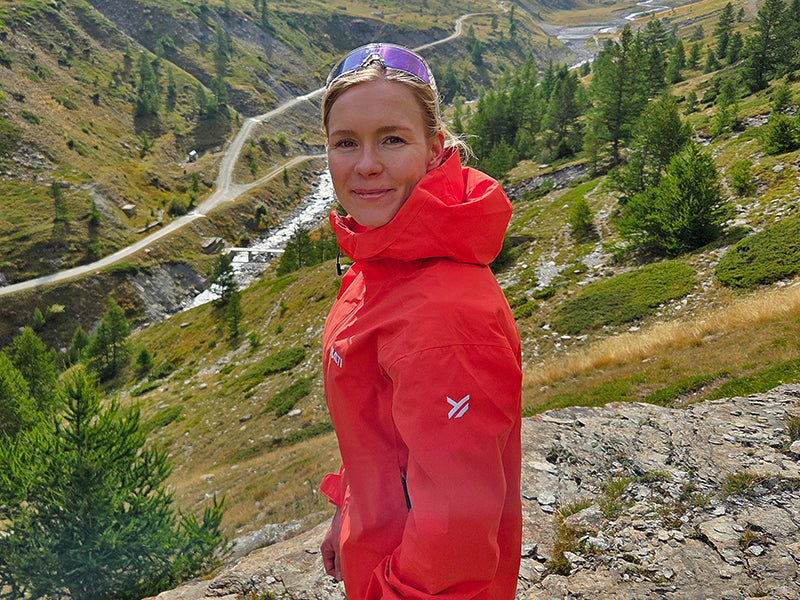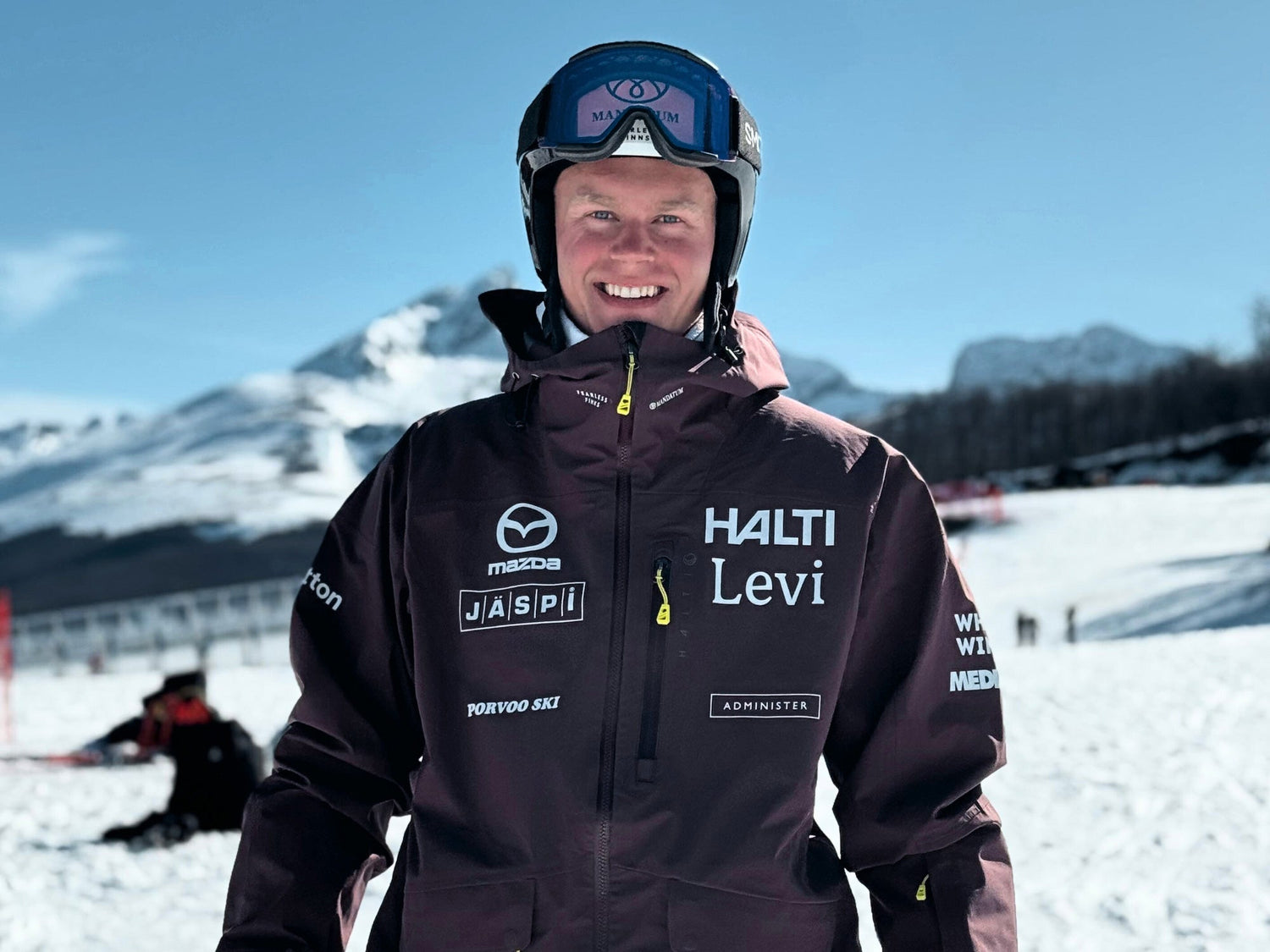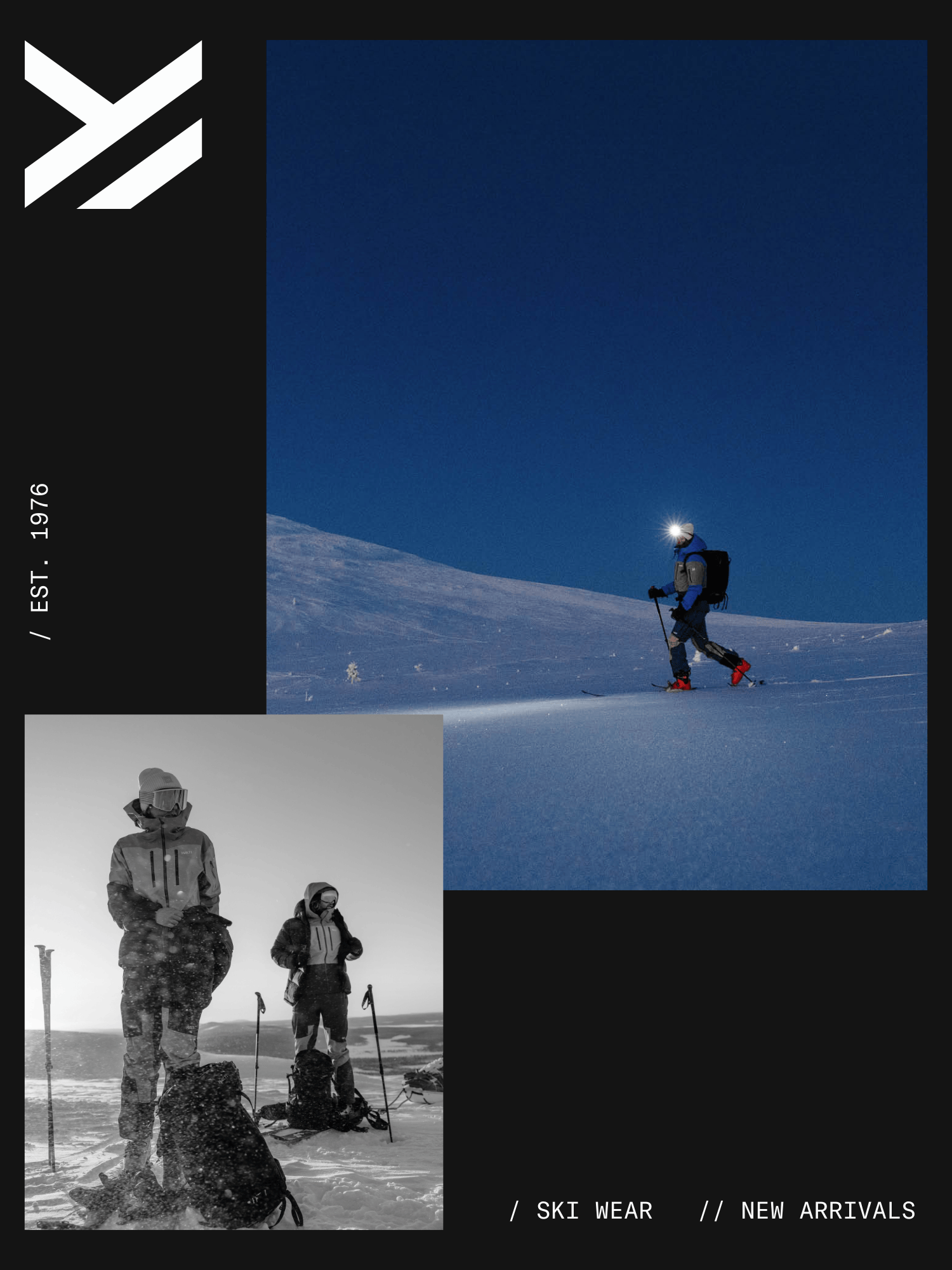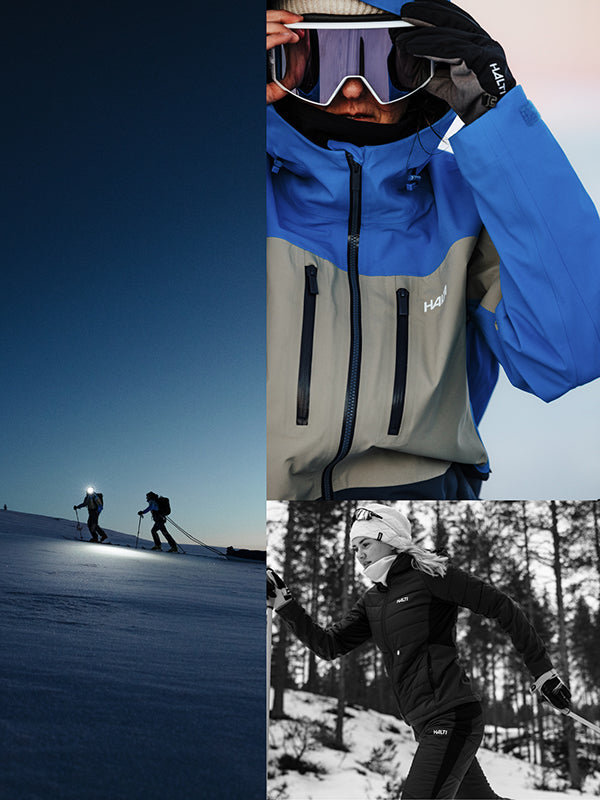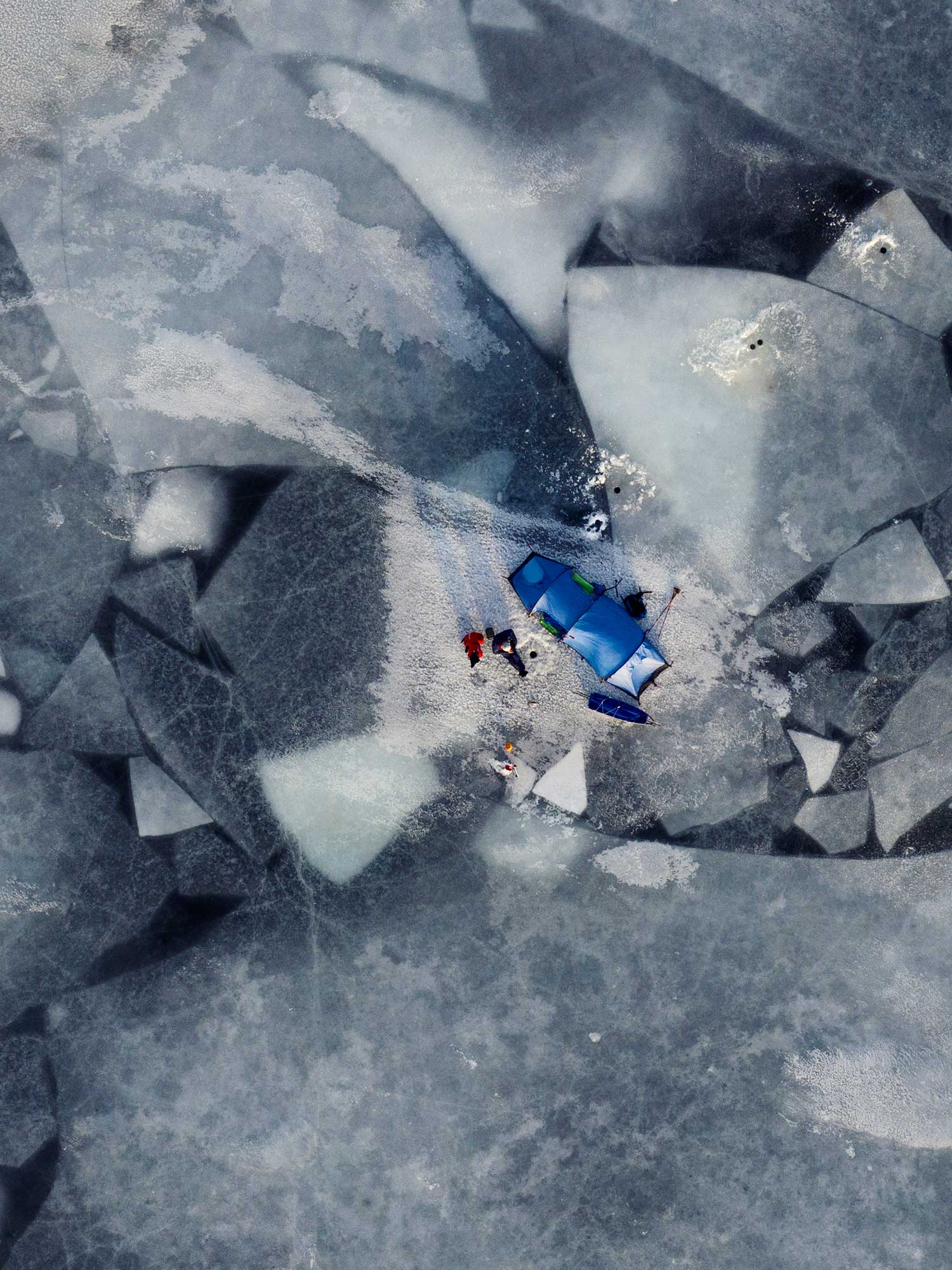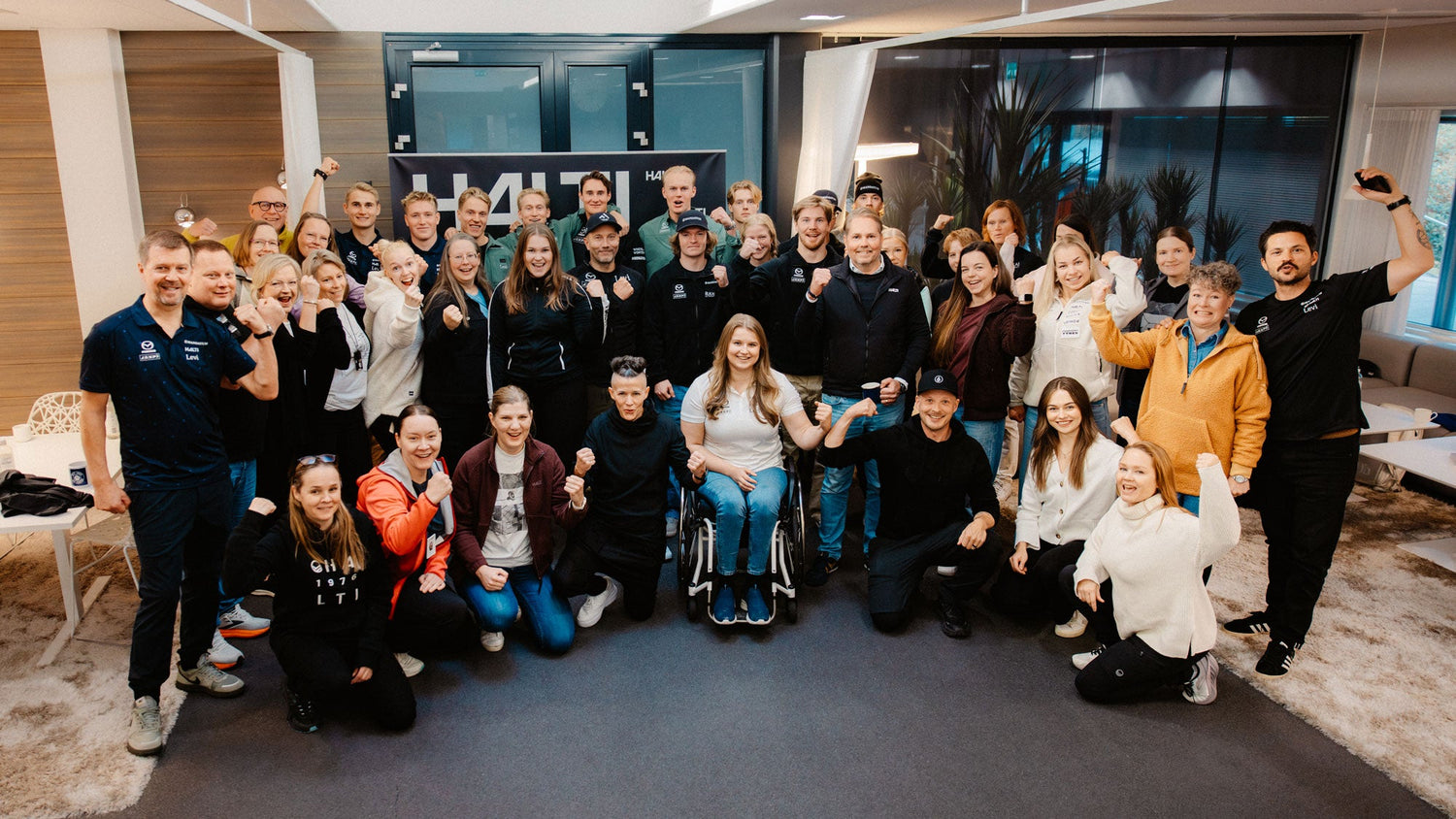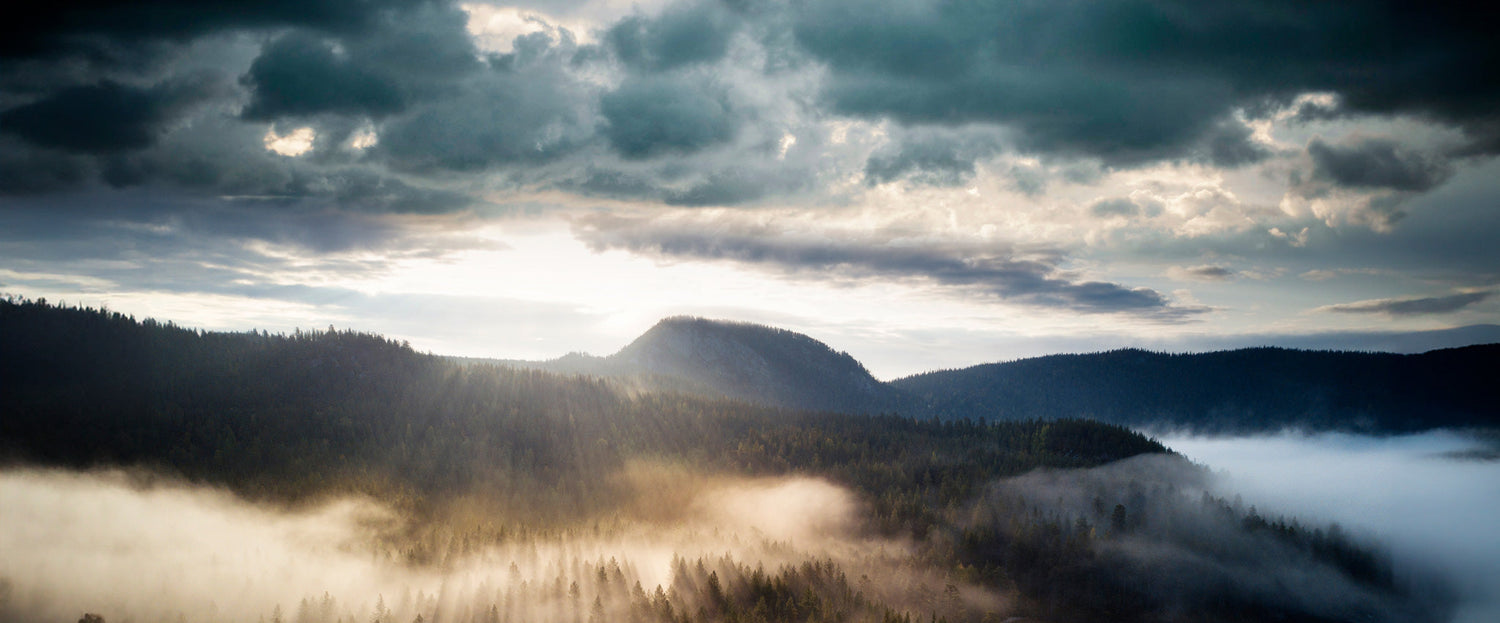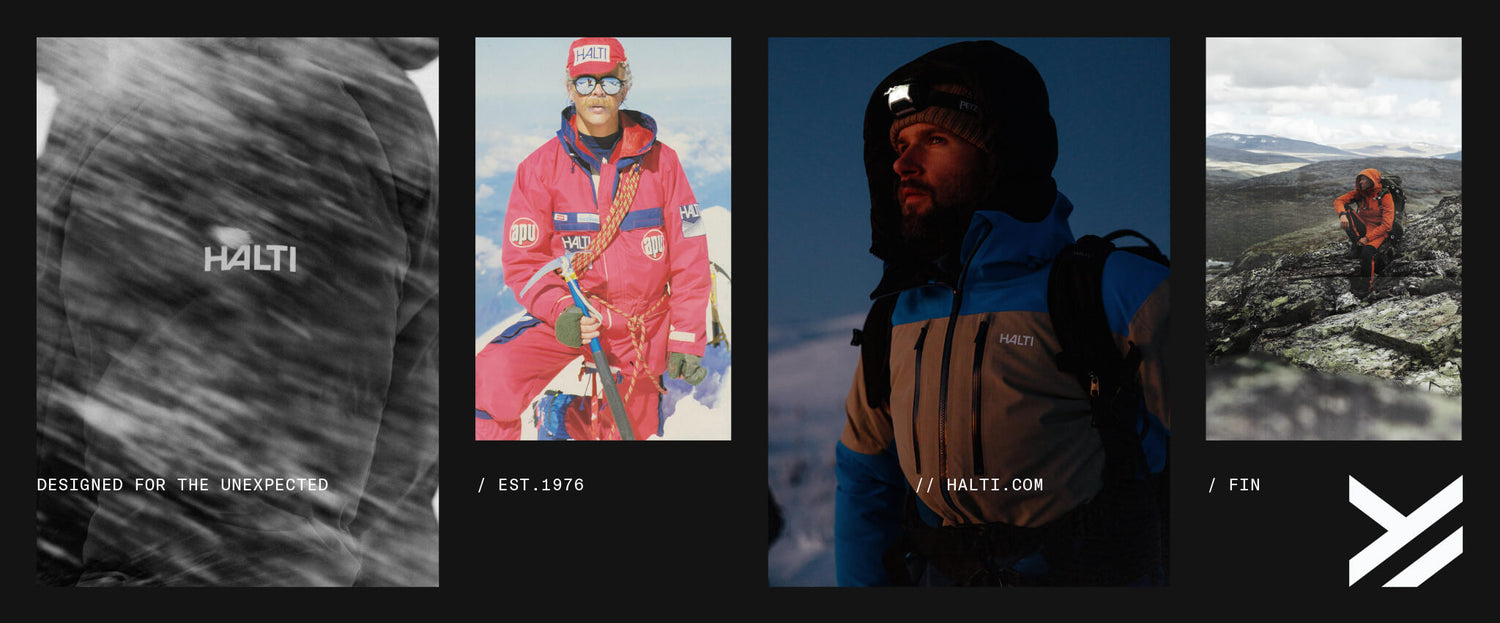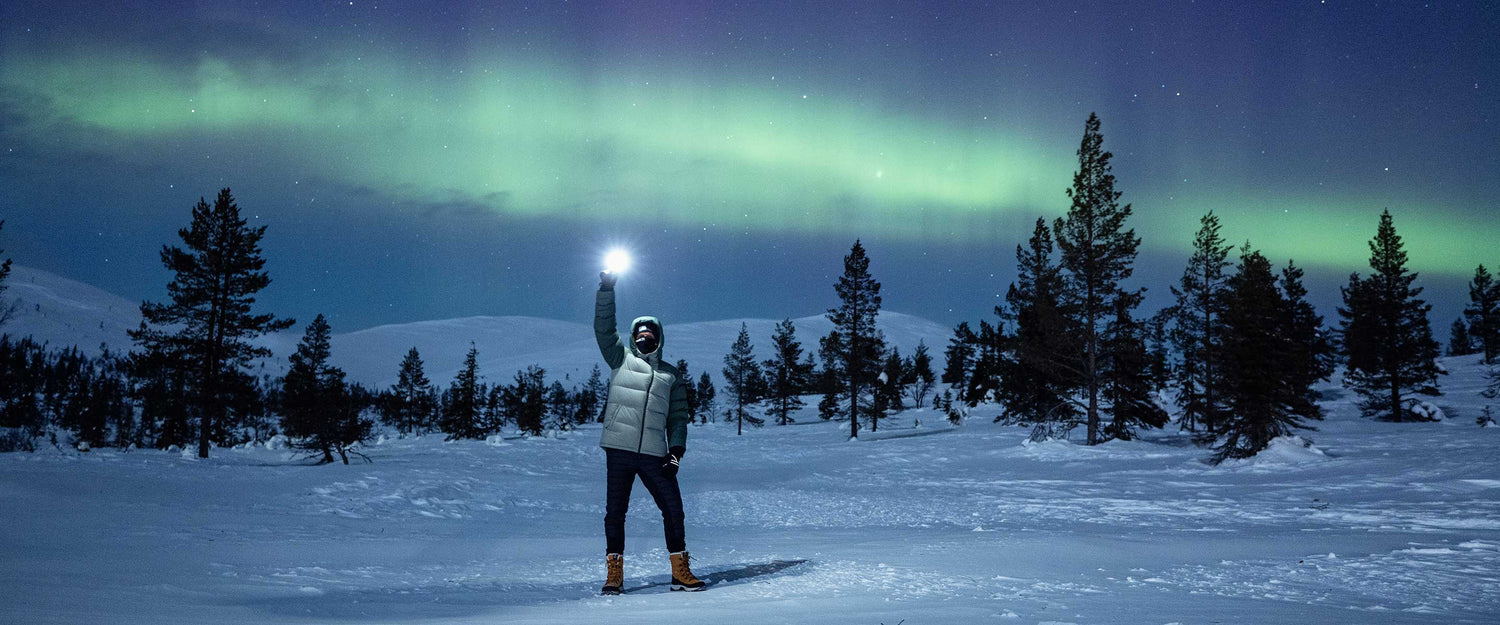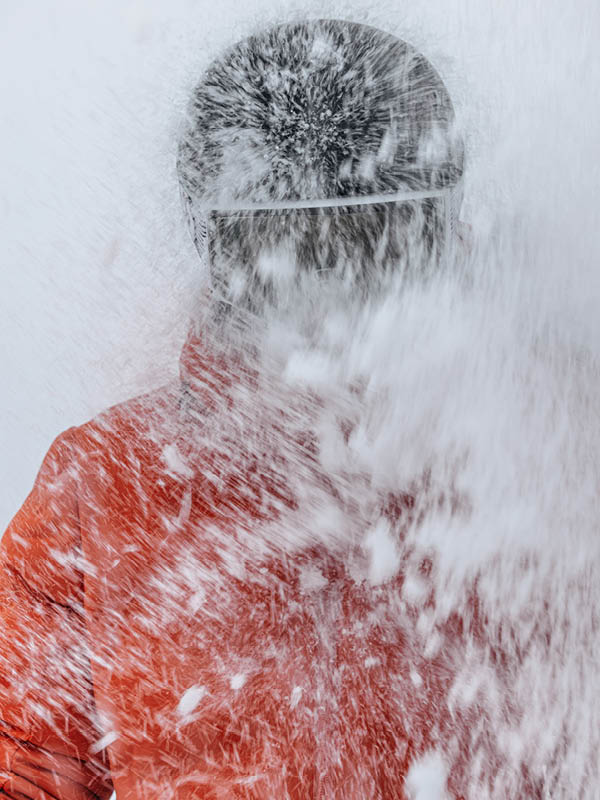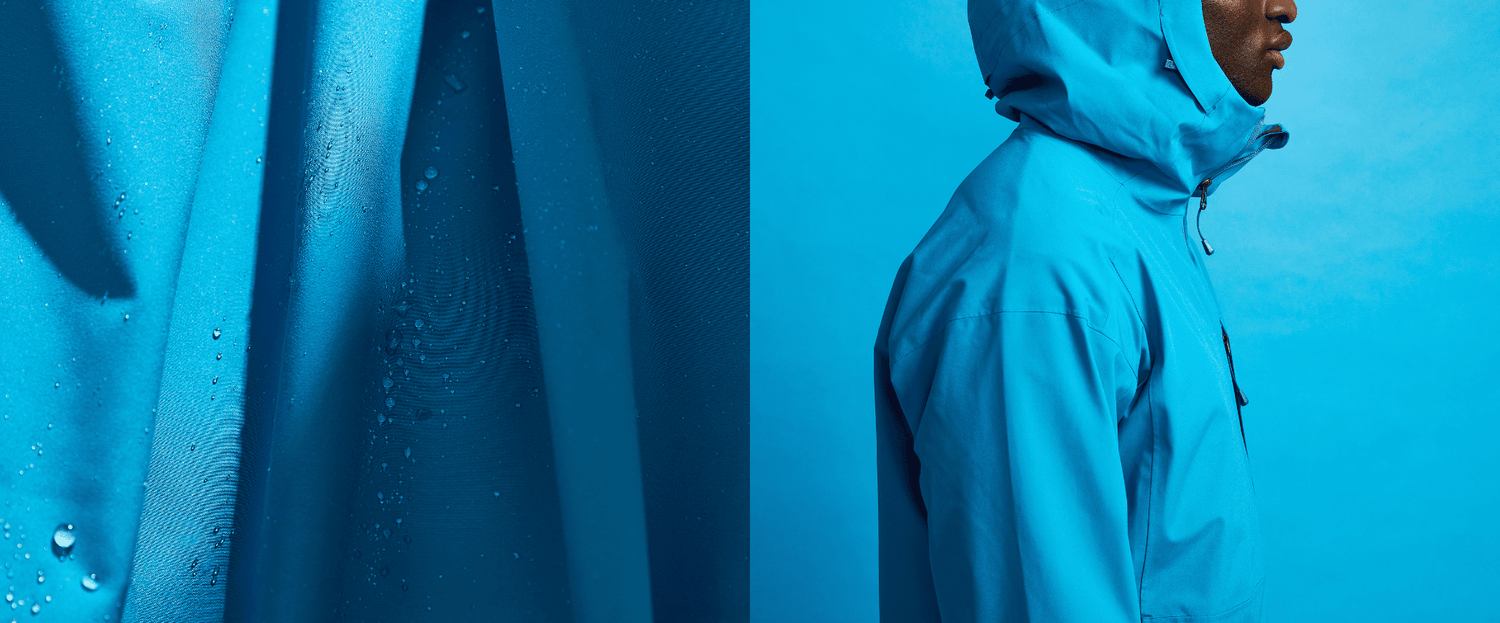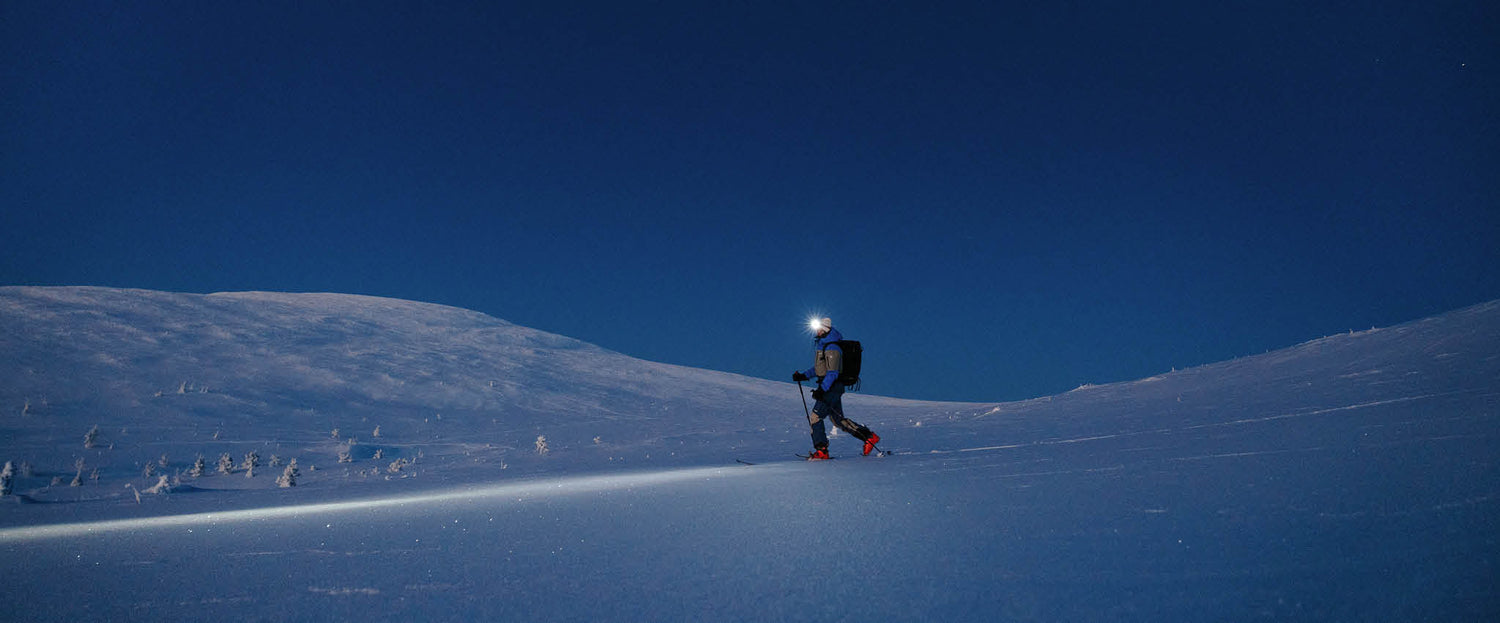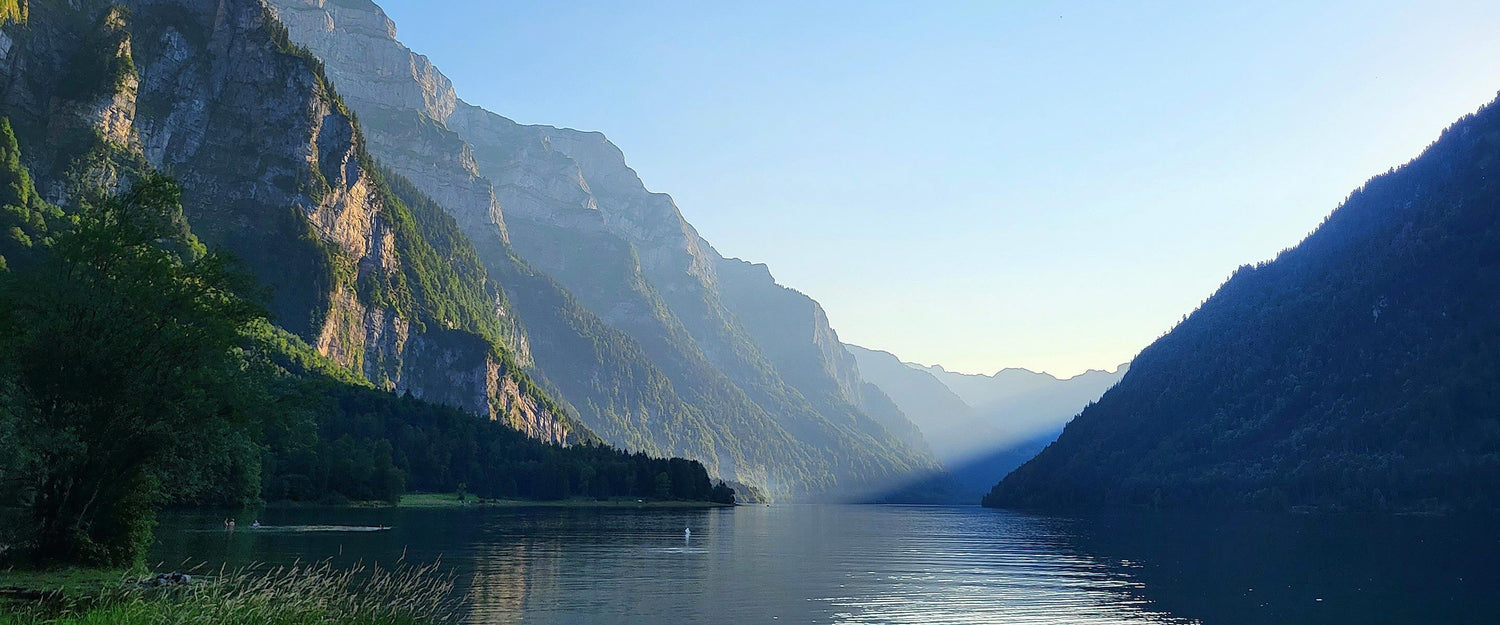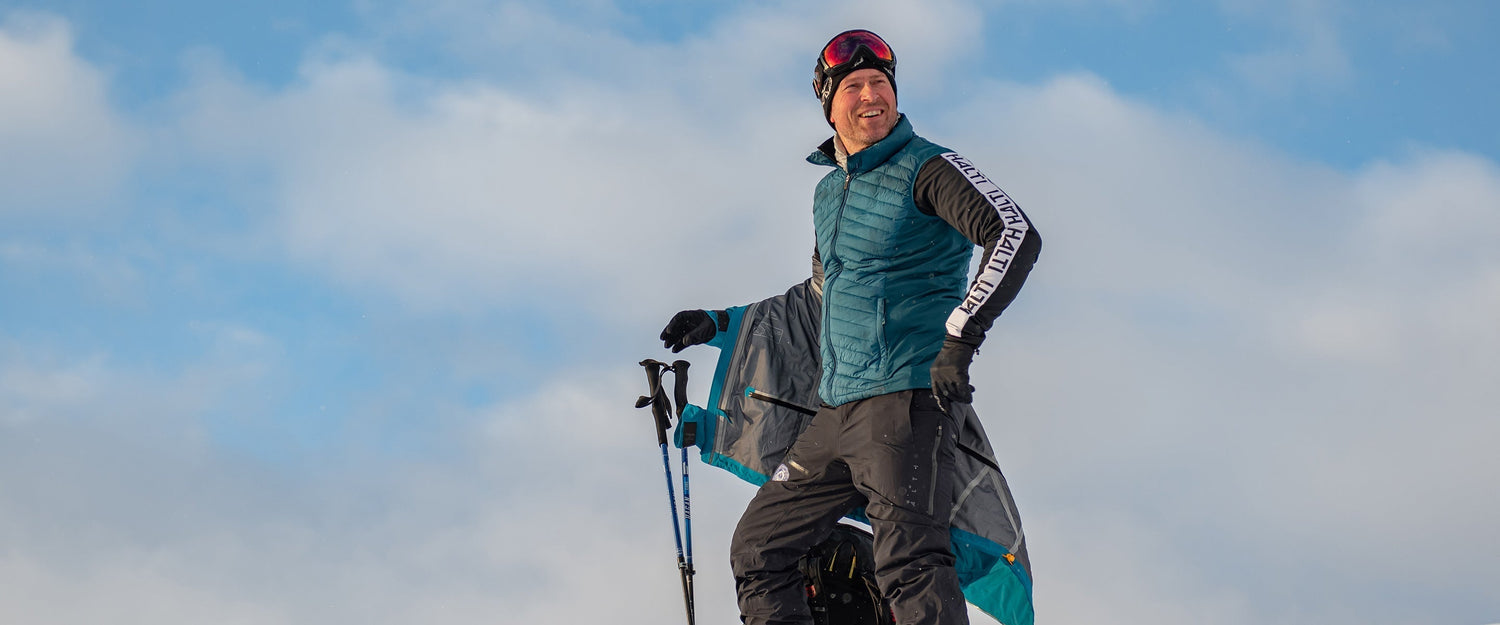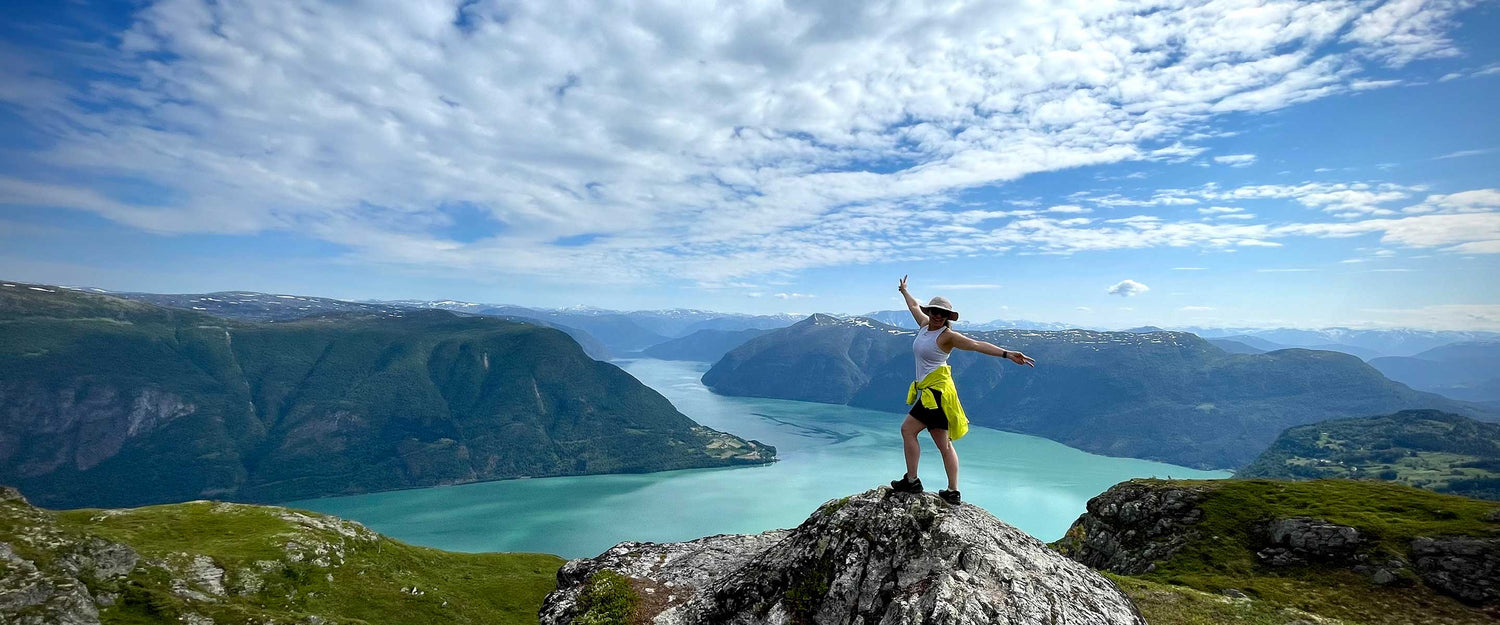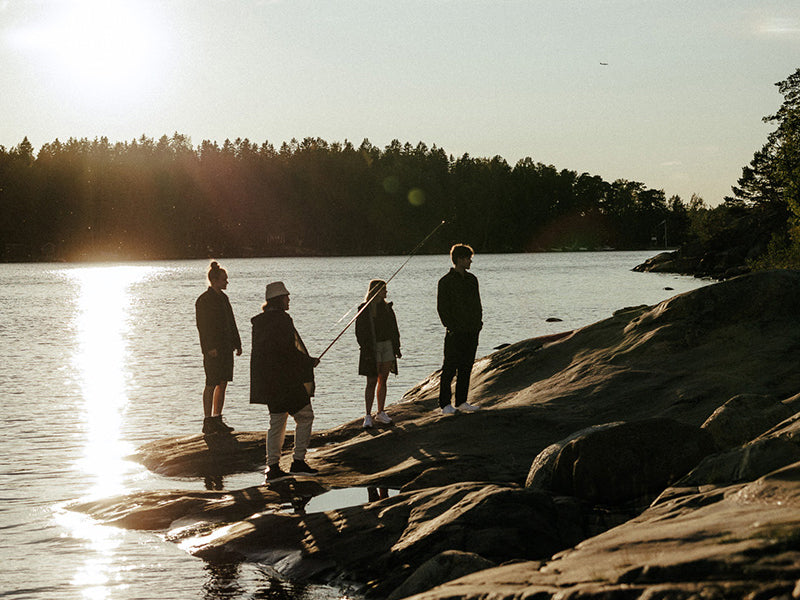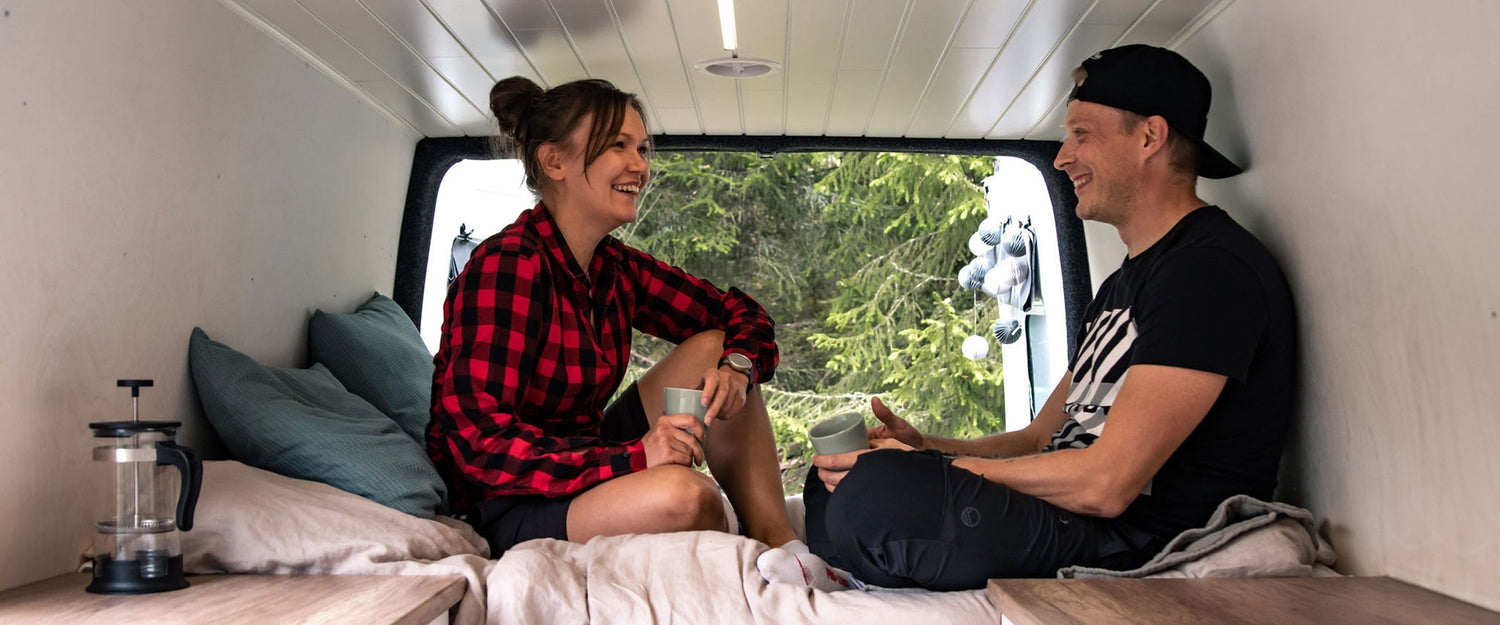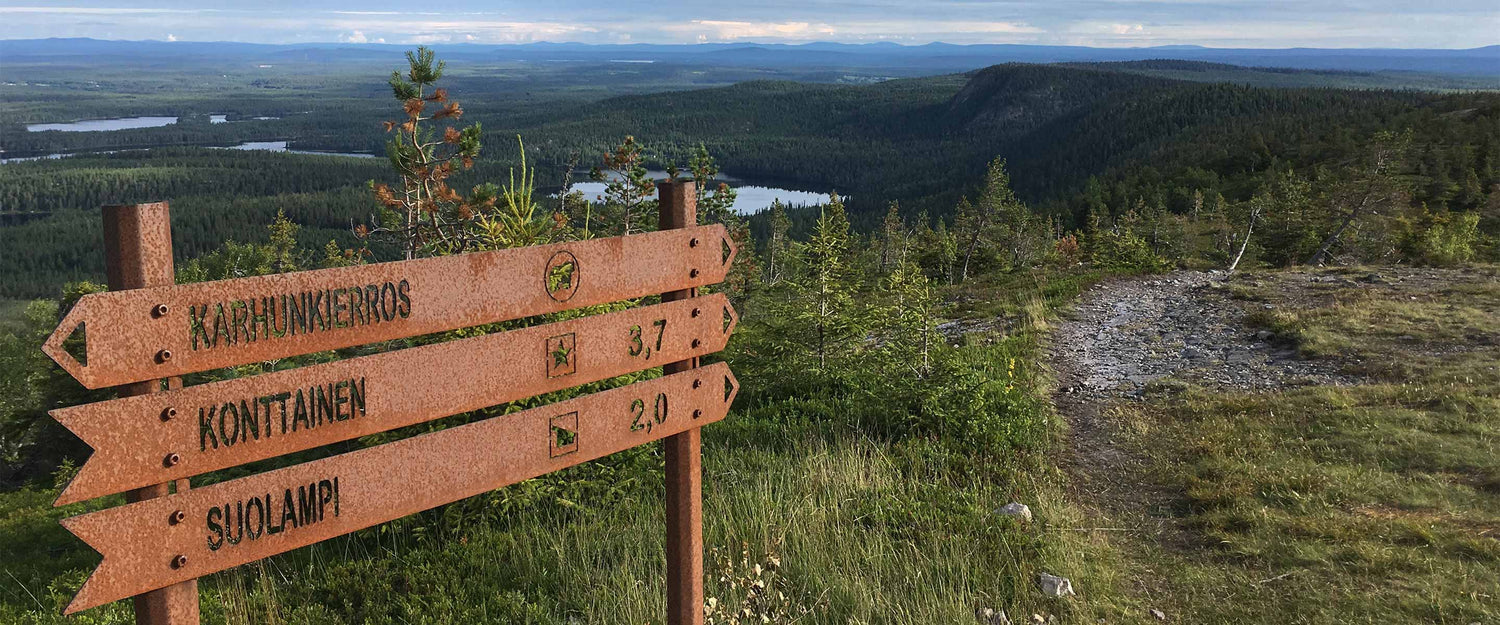“Being outdoors is an inner journey”
Josef Westerlund, a seasoned mountain guide, outdoor educator, and survival instructor, has always been fascinated by the human mind. For him, life is a pursuit of balance on and off the mountains.
(box)
Who: Josef Westerlund, IFMGA/IVBV/UIAGM international mountain guide, outdoor educator, survival instructor, and Halti Team member from Pietarsaari, Finland.
How he moves: On snow, mountains, and sea.
Where to find him: josefwesterlund.com
Josef Westerlund joins our video call from his kitchen in Pietarsaari, a coastal town in western Finland. The region, known for its lack of vertical distances, might seem like an unusual home
for a certified mountain guide and avalanche educator.
It's nine in the morning, and Josef has already had a busy start to the day, including a 6 a.m. CrossFit class. The sport is a good balance to his outdoor activities and an excellent way to keep in shape for the upcoming winter season, he explains.
In his 25 years as a professional guide, Josef has learned the importance of balance: the balance between taking risks and staying within one’s comfort zone, between facing danger and having fun, between heading out into the mountains and spending time at home with his family.
“When I balance work and free time well, I can truly enjoy both. Soon, I’ll go to Japan for three weeks of skiing, which is fun. Then I get to come home and take a couple of weeks off before going on another trip,” Josef explains.
Not that he rests on his laurels when he’s back on flatter lands. At home, he works out, prepares for trips, educates upcoming outdoor professionals, runs work coaching programs, and pursues his passion for sailing. He’s also always studying something, currently theology.
“My goal in life, which I really suck at, is to be able to focus on one thing. But I have never managed to do that”, he says, laughing.
Preparing for risks begins with the right headspace
The outdoors is Josef’s playground and office, but he’s always been fascinated by what happens inside the human mind. His humanistic side is also evident in one of his many lines of work: he’s a counsellor for an organisation supporting victims of sexual abuse. He’s also part of a program that offers help to violent offenders.
“For me, outdoors has always been about the people and their inner processes. The communication, the group dynamics and the inner journey people take,” he muses.
Understanding the human mind is essential in risky sports like ski touring and mountaineering. While careful planning, training, and preparation go a long way, risks are always present. As a guide, Josef strives to create an environment where his clients are comfortable with expressing their wishes for the trip and voicing their insecurities.
Josef has faced danger many times during his quarter-century-long career. In his twenties, he had a serious climbing accident that transformed his outlook for good.
“I had assessed and accepted the risk that I might fall. But what I hadn’t realised was that I could be paralysed instead of just breaking a leg. Had I fallen five centimetres to the right, I could have spent the rest of my life in a wheelchair. The recovery took almost a year, and the incident changed my perspective on risk.”
Nowadays, his most important goal is to return home to his wife and two teenage children—one of whom has just ambled into the kitchen to pour a bowl of cereal, seemingly uninterested in Dad’s thoughts on facing mortal danger on the mountains.
How does an experienced guide deal with fear when things go sideways? Josef explains that preparation for risks begins well before the trip.
“It starts with reflection at the beginning of the season: How much have I been training? Where’s my head at? Later, you must do the same every day and ask the same questions: Where am I today? How am I feeling? Am I able to take the route, or should we choose another?”
Josef explains that it’s vital to understand how the mind and body react to stress in a life-threatening situation. You must focus on breathing and moving, not letting your mind worry about anything other than the task at hand—something that’s significantly harder to do if you’re highly stressed from the start.
He emphasises that there is no shame in switching plans and choosing an easier route for the day when needed. Sometimes, letting go of the pressure to do epic things leads to a more enjoyable adventure.
“The decision takes away the stress, and it can be a really good day. You might end up having a perfect day on easier powder instead of fearing for your life the entire time.”
A small ant in the big universe
For many, outdoor activities are more than just hobbies. Whether skiing, climbing or hiking, the appetite grows with every experience. Before you know it, day trips have turned into overnighters, and soon you’re spending weeks on end in the backcountry.
“When you do something that pushes your limits a little bit, that’s when you start to feel alive.”
Josef is fascinated by the concept of feeling alive, though he hasn’t quite figured out how or why it happens—or if it will happen at all. Sometimes, the feeling strikes while driving a car, sometimes while standing on a mountain.
“It’s a short moment, just a couple of seconds or a minute. You just feel so happy. That’s the feeling we’re searching for, the feeling of being a small ant in the big universe”, he says a little wistfully.
Josef is quick to clarify that when he’s guiding a group, he’s not chasing that feeling himself but creating experiences where his clients might find it. For him, the moments he feels most alive are during his own sail and ski adventures, when he sets sail to remote ski touring locations.
“For me, it’s the balance of sea and mountains. There’s nothing like it.”
Josef’s tips for preparing for the outdoors
Understand your headspace. Preparing for risks begins at home. Ask yourself: Where’s my head at? Have I trained enough? Am I prepared enough?
Plan ahead. When you have a plan, you can adapt to the environment and change your plans. If you don’t have a plan, you’re not flexible.
Wear the right clothes. Being very cold or wet can shift your focus, narrow your view, and distract you from the task at hand.


